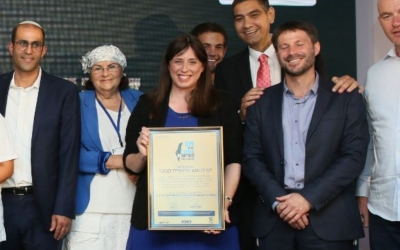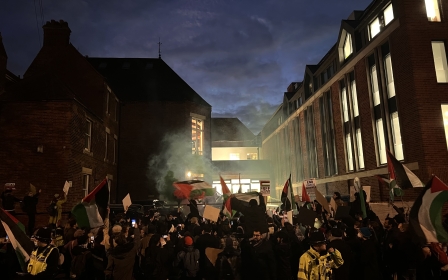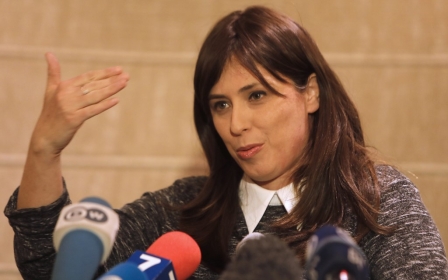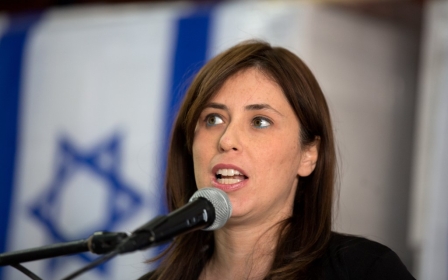UK: Oxford students report racial profiling at event hosting Israeli ambassador
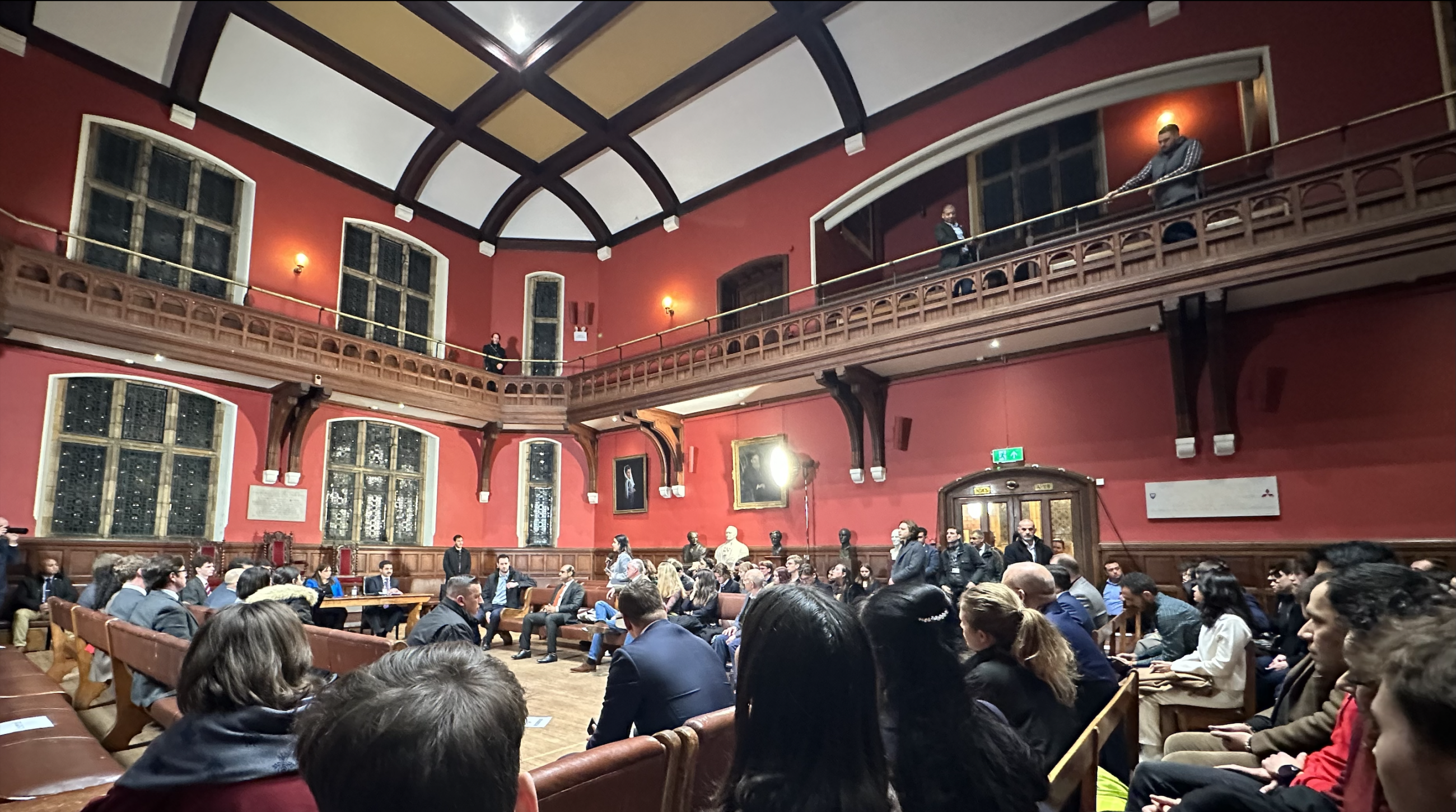
Pro-Palestine students said they faced racial profiling and intimidation while protesting Oxford Union’s hosting of Israel's ambassador to Britain on Thursday.
Ambassador Tzipi Hotovely, who previously served as a settlement minister under Prime Minister Benjamin Netanyahu, spoke at the Oxford Union during a members-only event discussing the Abraham Accords.
The event also hosted the UAE's ambassador to the UK, Mansoor Abulhoul; and Bahrain's deputy ambassador to the UK, Hussain Mohammed Alam.
More than 150 Oxford students protested the union’s invitation of Hotovely, citing Israel’s human rights violation against Palestinians.
Security was high at the event, with at least six security guards manning the entrance and four others stationed inside the debating society’s hall.
Students reported being racially profiled and heavily scrutinised by police and security guards, both upon entry to the event and when standing outside demonstrating.
One student, who wished to remain anonymous, told Middle East Eye that “security [guards] were profiling people, there was a girl wearing a hijab, they checked her more than they checked others’ bags. They saw a flag in her bag and told her to leave it with them”.
Despite this, upon entering the grounds after passing rigorous security, one attendee of the event was heard shouting “fuck Palestine” as he walked into the union grounds.
The Oxford Student newspaper said three of its journalists covering the event were removed from the area by police after being questioned and threatened with arrest.
'There was a girl wearing a hijab, they checked her more than they checked others' bags. They saw a flag in her bag and told her to leave it with them'
- Oxford University student
The protest outside the hall was organised by Oxford University's Arab, Palestinian and Syrian societies. Demonstrators condemned the Oxford Union for inviting Hotovely, who one protester accused of supporting violence against Palestinians.
“Hotovely joins the ambassadors to UAE and Bahrain to discuss the Abraham Accords, a conversation that legitimises the Israeli occupation and escalating violence on Palestinians, just as 2022 marked the deadliest year for Palestinians in the occupied West Bank,” one of the protest organisers, who did not wish to give a name, told MEE.
“This is the second time in a year that the union has brought Hotovely to campus, despite the extremity of her support for the violence on Palestinians.”
The protest organiser added that Oxford Union advertised the event two days earlier in a deliberate effort to suppress opposition to Hotovely’s invitation.
Hotovely speech interrupted
Inside the union building, the “free Palestine” chants of protestors outside could be heard through the thin windows throughout the discussion.
As Hotovely began to speak, a student sitting in the back row raised a Palestinian flag, almost at half-mast, as if raising it only for the panelists to see. Security quickly pounced on him and took the flag outside.
In her segment, Hotovely recounted the number of Israelis killed in the past month by who she called “Palestinian terrorists”, a label that prompted protests from members of the audience.
At least 62 Palestinians have been killed by Israeli forces and settlers this year, at a rate of more than one fatality a day amid heightened tensions. Meanwhile, 1o Israelis have been killed by Palestinians.
A group of students chanted “they are not terrorists” and called for a “Free Palestine” before they were escorted out by security.
An Oxford student who staged a walkout during Hotovely's speech said he was shocked by Hotovely’s invitation.
"As an Oxford student, I’m shocked that it’s 2023 and we’re still entertaining people like Hotovely. We’ve already gone through the whole thing where the place used to be racist or colonial or pro-occupation, we’ve done a lot of work on decolonising,” the student, who wished to remain anonymous, told MEE.
Middle East Eye delivers independent and unrivalled coverage and analysis of the Middle East, North Africa and beyond. To learn more about republishing this content and the associated fees, please fill out this form. More about MEE can be found here.


